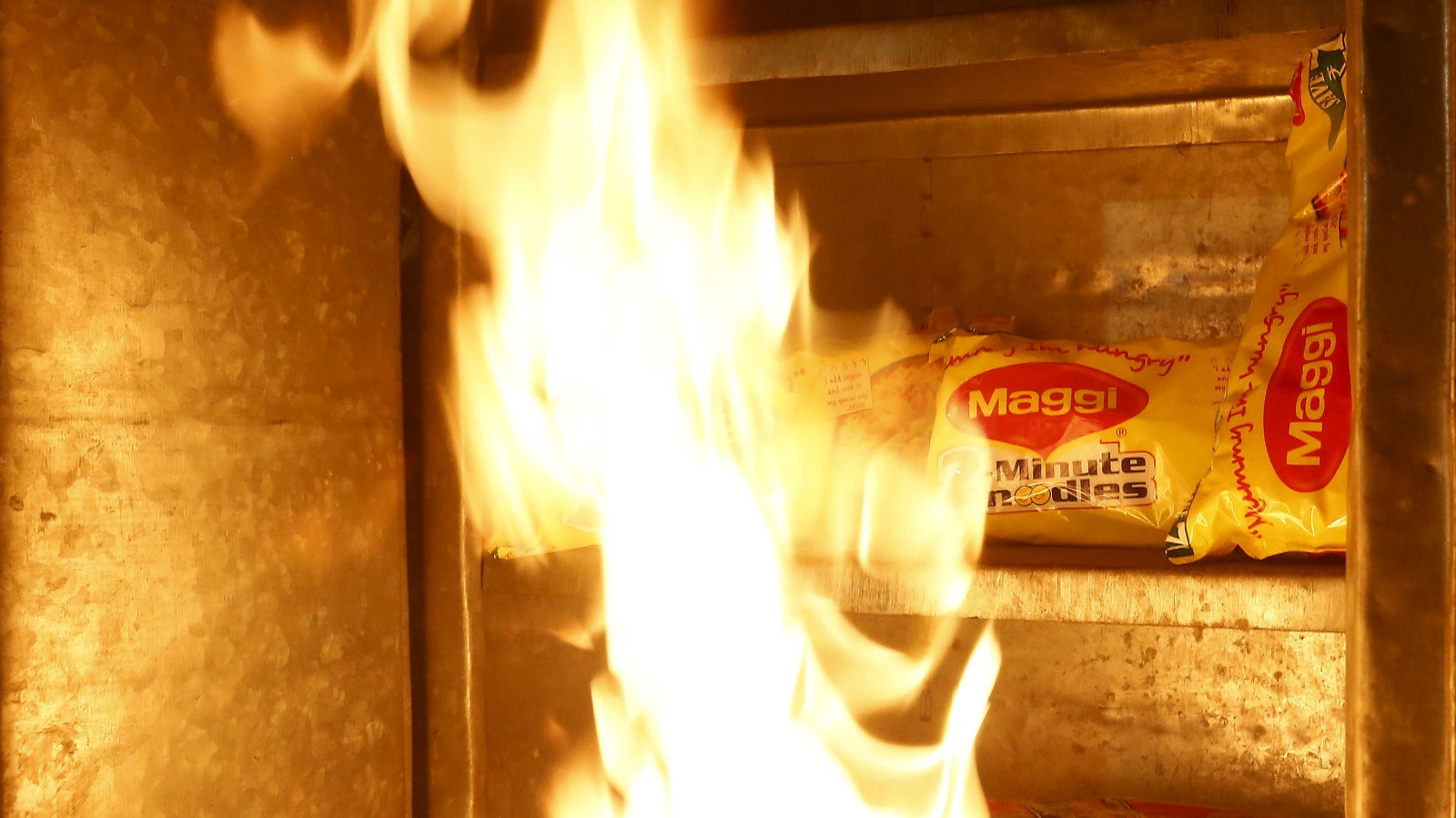Maggi apparently is unsafe for Indians, but perfectly fine for Singaporeans and the British
The debate between the Indian food authorities and Swiss multinational Nestle over the safety of Maggi in India has become even more bizarre.


The debate between the Indian food authorities and Swiss multinational Nestle over the safety of Maggi in India has become even more bizarre.
Almost a month ago, India’s food inspectors deemed the instant noodles unsuitable for consumption after they found high levels of monosodium glutamate and lead in the samples they tested. But Nestle India, throughout the debacle, maintained that the noodles met all the safety standards. The problem, the company said, was ”a difference of opinion over the proper methodology for testing foods.”
However, on June 30, the Bombay high court allowed Nestle to export India-manufactured Maggi to several countries around the world.
In effect, Maggi noodles are unsuitable for Indians, but not other nationals.
Made-in-India Maggi noodles are typically imported by Singapore, Canada, the US, the UK and Australia. Right now, only Australia has temporarily suspended imports.
Even as the ban on sale of Maggi in India continues, the UK on July 1 confirmed that the instant noodles were safe for consumption after testing 900 random samples. “The UK have all found that levels of lead in the product is well within EU permissible levels and would not be a concern to consumers,” the Food Standards Agency (FSA) said.
“Nestle informed the FSA that the only variety of Maggi Noodles they import into the UK from India is the ‘masala flavour.’ The FSA has now tested this flavour and others from the Maggi noodles range, as a precaution,” the FSA added.
On June 8, Singapore’s food safety authorities also deemed India-made Maggi to be safe.
After conducting laboratory tests that covered “a wide range of hazards associated with food,” the Agri-Food and Veterinary Authority of Singapore said made-in-India Maggi was safe, and not a risk to consumers, according to the Straits Times.
Notably, the Food Safety and Standards Authority of India has been notorious for its substandard food testing, given its lack of staff and scientific expertise. Here’s how Aroon Purie of India Today summarised the state of India’s food testing authority:
… the five labs in Uttar Pradesh date back to the 1980s and have neither the technical wherewithal nor the manpower to tackle complicated food-testing cases. Two of them, including the one in Gorakhpur that first declared Maggi a violator, are running without a public analyst. About 430 posts of food inspectors in the state are lying vacant, and only 40 per cent of the total technical vacancies have been filled..
The Bombay high court order is a relief of sorts for Nestle, which has been destroying millions of packets of Maggi, in the largest recall in the company’s over 100-year history.
Following an all-India recall of the popular noodle brand almost a month ago, Nestle India had decided to eliminate the existing Maggi stock by incinerating it in the furnaces of cement plants. In total, some Rs320 crore worth of Maggi noodles were to be destroyed. On June 26, the company said it had already incinerated 30% of the noodles it was recalling. One of the main reasons behind the court order is to stem this ongoing destruction of Maggi packets.
An email with a questionnaire sent by Quartz to Nestle India remained unanswered.